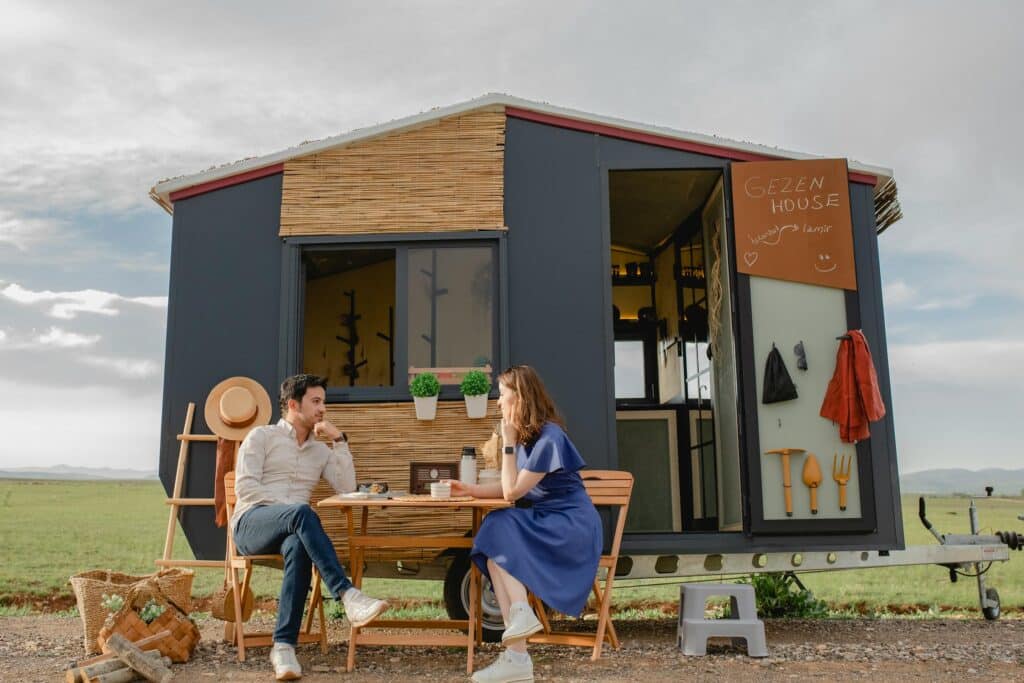Minimalism isn’t just about owning fewer things. It’s about breathing easier, thinking clearer, and finally breaking free from the constant cycle of wanting more. And let’s be honest—most of us have been conditioned to believe that bigger is better, that an overflowing closet is a sign of success, that a spacious house is the ultimate goal. But what if we’ve got it all wrong?
We spend so much of our lives accumulating. More space. More things. More commitments. And then one day, we wake up drowning in it all—mentally, physically, financially. The good news? There’s another way. A simpler, lighter, more intentional way to live. It’s not about deprivation. It’s about letting go of what doesn’t serve us so we can hold onto what does.

Via Pexels
The Truth About Unused Space
Walk through your home with fresh eyes. Really, look at it. How much of your space do you actually use? The guest room that’s become a storage unit? The formal dining room you walk past but never sit in? That extra square footage isn’t just empty—it’s taking up your time, money, and energy.
Bigger homes mean higher utility bills, more cleaning, and more maintenance. And for what? A handful of rooms you barely step foot in? We’re so used to the idea that we need a certain amount of space to be comfortable, but what if comfort isn’t measured in square feet? What if it’s measured in peace of mind?
The Pressure of More
There’s this unspoken rule that we’re supposed to keep upgrading. Get a bigger place. Fill it with nicer things. Work harder to afford it all. But no one talks about the weight of it—the stress of higher mortgage payments, the endless upkeep, the sheer exhaustion of managing a life filled with stuff.
More isn’t always better. Sometimes, it’s just more responsibility. More to clean. More to fix. More to worry about. And the kicker? It never stops. As soon as we get what we thought we wanted, the bar moves. The cycle repeats. But what happens if we step off the treadmill? If we decide that “enough” is actually enough?
The Mental Freedom of Less
Clutter isn’t just physical—it’s mental. Every pile of unused junk, every closet stuffed to the brim, every surface covered in things we might need someday—it’s all noise. And it weighs on us, whether we realize it or not. There’s a reason people feel lighter after a deep clean or a major declutter. Our surroundings affect our mindset. When our homes are chaotic, our brains feel the same. But when we strip away the excess, what’s left? Space. Clarity. Relief.
Imagine opening a closet and knowing exactly what’s inside. Walking into your living room and not feeling overwhelmed. Coming home and exhaling, rather than immediately making a mental to-do list. That’s the gift of minimalism. Not just an aesthetic, but a sense of ease.
The Financial Benefits of Scaling Down
Let’s talk about money. Because whether we like it or not, our homes are one of our biggest expenses. The bigger the house, the higher the bills. Mortgage. Insurance. Repairs. Property taxes. And the kicker? The more space we have, the more we feel the need to fill it. Furniture. Decor. Random impulse buys that seemed like a good idea at the time.
But what if we flipped the script? What if instead of stretching our budget to afford a bigger house, we embraced a smaller, more efficient space? Lower costs mean more freedom. Less financial stress. More money for experiences rather than objects. And that’s why so many people are rethinking the way they live. Companies like Mobile Homes Direct 4 Less are making it easy for people with a minimalist mindset to find homes that fit their actual needs rather than outdated expectations.
How to Start Your Minimalist Journey
- Start with what you already own. Go room by room and ask yourself: Do I actually use this? Do I even like this? If not, why keep it?
- Rethink your space. Instead of dreaming of a bigger home, focus on making the most of the space you have. What areas feel wasted? How can you rearrange to better suit your life?
- Prioritize what matters. Shift your mindset from more to better. Instead of having 10 mediocre things, invest in one great thing that truly serves you.
- Get comfortable with letting go. Not everything needs to be saved. Not everything has to be justified. If something no longer adds value, it’s okay to move on.
- Redefine success. A full life isn’t about owning the most—it’s about needing the least. Focus on filling your days with what truly fulfills you, not just filling your house with things.
Minimalism isn’t about having an empty house. It’s about having a full life. A life where your home works for you, not against you. Where your space feels like a sanctuary, not a storage unit. Where you wake up in the morning and feel light.
Because, at the end of the day, it’s not about what we own. It’s about how we live. And when we let go of the excess, we make room for what truly matters.
This viewpoint is refreshing! Minimalism simplifies our lives and promotes a valuing of experiences over goods. I like redefining success and focusing on what enhances our life. Knowing that financial freedom comes from needing less as well as earning more is liberating. Thanks for providing these practical steps to start a more meaningful and deliberate life!
This is a welcome change of pace! Our lives are made simpler by minimalism, which also encourages us to value experiences above material possessions. I enjoy redefining success and concentrating on things that improve our lives.